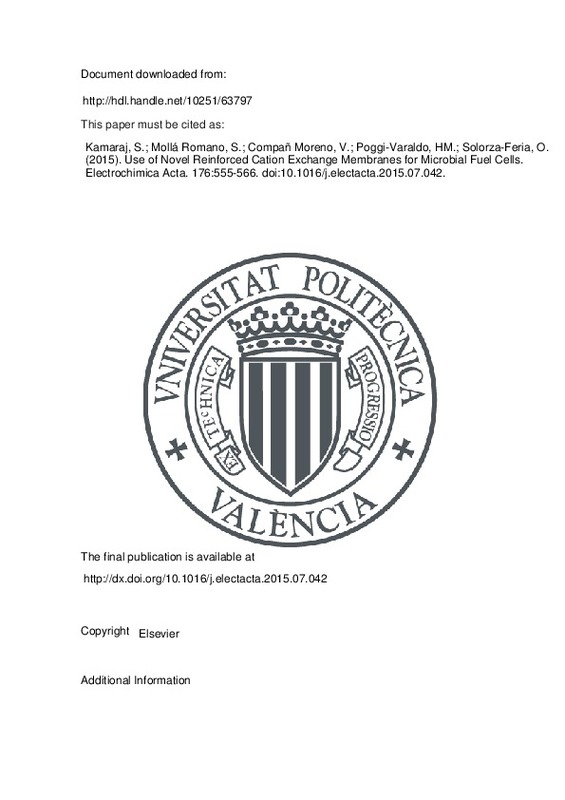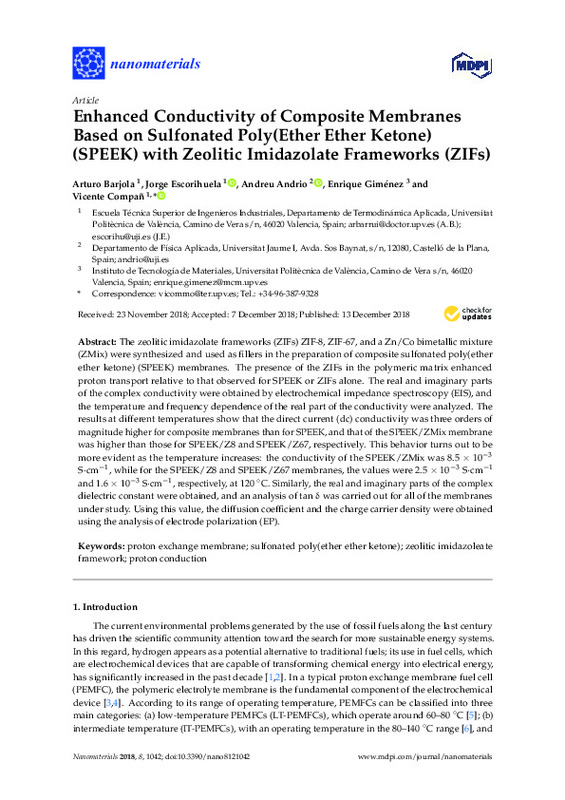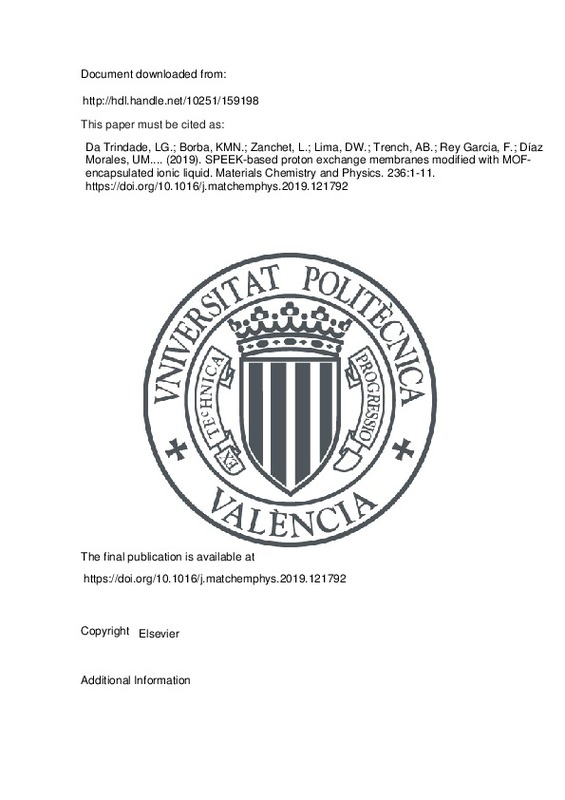Beer, P. D., & Gale, P. A. (2001). Erkennung und Nachweis von Anionen: gegenwärtiger Stand und Perspektiven. Angewandte Chemie, 113(3), 502-532. doi:10.1002/1521-3757(20010202)113:3<502::aid-ange502>3.0.co;2-a
Beer, P. D., & Gale, P. A. (2001). Anion Recognition and Sensing: The State of the Art and Future Perspectives. Angewandte Chemie International Edition, 40(3), 486-516. doi:10.1002/1521-3773(20010202)40:3<486::aid-anie486>3.0.co;2-p
Kleerekoper, M. (1998). THE ROLE OF FLUORIDE IN THE PREVENTION OF OSTEOPOROSIS. Endocrinology and Metabolism Clinics of North America, 27(2), 441-452. doi:10.1016/s0889-8529(05)70015-3
[+]
Beer, P. D., & Gale, P. A. (2001). Erkennung und Nachweis von Anionen: gegenwärtiger Stand und Perspektiven. Angewandte Chemie, 113(3), 502-532. doi:10.1002/1521-3757(20010202)113:3<502::aid-ange502>3.0.co;2-a
Beer, P. D., & Gale, P. A. (2001). Anion Recognition and Sensing: The State of the Art and Future Perspectives. Angewandte Chemie International Edition, 40(3), 486-516. doi:10.1002/1521-3773(20010202)40:3<486::aid-anie486>3.0.co;2-p
Kleerekoper, M. (1998). THE ROLE OF FLUORIDE IN THE PREVENTION OF OSTEOPOROSIS. Endocrinology and Metabolism Clinics of North America, 27(2), 441-452. doi:10.1016/s0889-8529(05)70015-3
Gale, P. A., García-Garrido, S. E., & Garric, J. (2008). Anion receptors based on organic frameworks: highlights from 2005 and 2006. Chem. Soc. Rev., 37(1), 151-190. doi:10.1039/b715825d
Martínez-Máñez, R., & Sancenón, F. (2003). Fluorogenic and Chromogenic Chemosensors and Reagents for Anions. Chemical Reviews, 103(11), 4419-4476. doi:10.1021/cr010421e
Moragues, M. E., Martínez-Máñez, R., & Sancenón, F. (2011). Chromogenic and fluorogenic chemosensors and reagents for anions. A comprehensive review of the year 2009. Chemical Society Reviews, 40(5), 2593. doi:10.1039/c0cs00015a
Yoon, J., Kim, S. K., Singh, N. J., & Kim, K. S. (2006). Imidazolium receptors for the recognition of anions. Chemical Society Reviews, 35(4), 355. doi:10.1039/b513733k
Steed, J. W. (2009). Coordination and organometallic compounds as anion receptors and sensors. Chem. Soc. Rev., 38(2), 506-519. doi:10.1039/b810364j
Caltagirone, C., & Gale, P. A. (2009). Anion receptor chemistry: highlights from 2007. Chem. Soc. Rev., 38(2), 520-563. doi:10.1039/b806422a
Gale, P. A., & Quesada, R. (2006). Anion coordination and anion-templated assembly: Highlights from 2002 to 2004. Coordination Chemistry Reviews, 250(23-24), 3219-3244. doi:10.1016/j.ccr.2006.05.020
Amendola, V., Bonizzoni, M., Esteban-Gómez, D., Fabbrizzi, L., Licchelli, M., Sancenón, F., & Taglietti, A. (2006). Some guidelines for the design of anion receptors. Coordination Chemistry Reviews, 250(11-12), 1451-1470. doi:10.1016/j.ccr.2006.01.006
Lee, J. Y., Cho, E. J., Mukamel, S., & Nam, K. C. (2004). Efficient Fluoride-Selective Fluorescent Host: Experiment and Theory†. The Journal of Organic Chemistry, 69(3), 943-950. doi:10.1021/jo0356457
Zhao, C.-H., Sakuda, E., Wakamiya, A., & Yamaguchi, S. (2009). Highly Emissive Diborylphenylene-Containing Bis(phenylethynyl)benzenes: Structure-Photophysical Property Correlations and Fluoride Ion Sensing. Chemistry - A European Journal, 15(40), 10603-10612. doi:10.1002/chem.200900864
Lu, Q.-S., Dong, L., Zhang, J., Li, J., Jiang, L., Huang, Y., … Yu, X.-Q. (2009). Imidazolium-Functionalized BINOL as a Multifunctional Receptor for Chromogenic and Chiral Anion Recognition. Organic Letters, 11(3), 669-672. doi:10.1021/ol8027303
Mizuno, T., Wei, W.-H., Eller, L. R., & Sessler, J. L. (2002). Phenanthroline Complexes Bearing Fused Dipyrrolylquinoxaline Anion Recognition Sites: Efficient Fluoride Anion Receptors. Journal of the American Chemical Society, 124(7), 1134-1135. doi:10.1021/ja017298t
Hudnall, T. W., Chiu, C.-W., & Gabbaï, F. P. (2009). Fluoride Ion Recognition by Chelating and Cationic Boranes. Accounts of Chemical Research, 42(2), 388-397. doi:10.1021/ar8001816
Rochat, S., & Severin, K. (2011). A simple fluorescence assay for the detection of fluoride in water at neutral pH. Chemical Communications, 47(15), 4391. doi:10.1039/c1cc10498e
Rajamalli, P., & Prasad, E. (2011). Low Molecular Weight Fluorescent Organogel for Fluoride Ion Detection. Organic Letters, 13(14), 3714-3717. doi:10.1021/ol201325j
Amendola, V., Esteban-Gómez, D., Fabbrizzi, L., & Licchelli, M. (2006). What Anions Do to N−H-Containing Receptors. Accounts of Chemical Research, 39(5), 343-353. doi:10.1021/ar050195l
Boiocchi, M., Del Boca, L., Gómez, D. E., Fabbrizzi, L., Licchelli, M., & Monzani, E. (2004). Nature of Urea−Fluoride Interaction: Incipient and Definitive Proton Transfer. Journal of the American Chemical Society, 126(50), 16507-16514. doi:10.1021/ja045936c
Esteban-Gómez, D., Fabbrizzi, L., & Licchelli, M. (2005). Why, on Interaction of Urea-Based Receptors with Fluoride, Beautiful Colors Develop. The Journal of Organic Chemistry, 70(14), 5717-5720. doi:10.1021/jo050528s
Kim, S. Y., & Hong, J.-I. (2007). Chromogenic and Fluorescent Chemodosimeter for Detection of Fluoride in Aqueous Solution. Organic Letters, 9(16), 3109-3112. doi:10.1021/ol0711873
Kim, T.-H., & Swager, T. M. (2003). A Fluorescent Self-Amplifying Wavelength-Responsive Sensory Polymer for Fluoride Ions. Angewandte Chemie, 115(39), 4951-4954. doi:10.1002/ange.200352075
Kim, T.-H., & Swager, T. M. (2003). A Fluorescent Self-Amplifying Wavelength-Responsive Sensory Polymer for Fluoride Ions. Angewandte Chemie International Edition, 42(39), 4803-4806. doi:10.1002/anie.200352075
Jiang, X., Vieweger, M. C., Bollinger, J. C., Dragnea, B., & Lee, D. (2007). Reactivity-Based Fluoride Detection: Evolving Design Principles for Spring-Loaded Turn-On Fluorescent Probes. Organic Letters, 9(18), 3579-3582. doi:10.1021/ol7014187
Yang, X.-F. (2007). Novel fluorogenic probe for fluoride ion based on the fluoride-induced cleavage of tert-butyldimethylsilyl ether. Spectrochimica Acta Part A: Molecular and Biomolecular Spectroscopy, 67(2), 321-326. doi:10.1016/j.saa.2006.07.020
Yang, X.-F., Ye, S.-J., Bai, Q., & Wang, X.-Q. (2006). A Fluorescein-based Fluorogenic Probe for Fluoride Ion Based on the Fluoride-induced Cleavage of tert-butyldimethylsilyl Ether. Journal of Fluorescence, 17(1), 81-87. doi:10.1007/s10895-006-0140-6
Zhu, C.-Q., Chen, J.-L., Zheng, H., Wu, Y.-Q., & Xu, J.-G. (2005). A colorimetric method for fluoride determination in aqueous samples based on the hydroxyl deprotection reaction of a cyanine dye. Analytica Chimica Acta, 539(1-2), 311-316. doi:10.1016/j.aca.2005.03.002
Kim, S. Y., Park, J., Koh, M., Park, S. B., & Hong, J.-I. (2009). Fluorescent probe for detection of fluoride in water and bioimaging in A549 human lung carcinoma cells. Chemical Communications, (31), 4735. doi:10.1039/b908745a
Sokkalingam, P., & Lee, C.-H. (2011). Highly Sensitive Fluorescence «Turn-On» Indicator for Fluoride Anion with Remarkable Selectivity in Organic and Aqueous Media. The Journal of Organic Chemistry, 76(10), 3820-3828. doi:10.1021/jo200138t
Cao, X., Lin, W., Yu, Q., & Wang, J. (2011). Ratiometric Sensing of Fluoride Anions Based on a BODIPY-Coumarin Platform. Organic Letters, 13(22), 6098-6101. doi:10.1021/ol202595t
Bozdemir, O. A., Sozmen, F., Buyukcakir, O., Guliyev, R., Cakmak, Y., & Akkaya, E. U. (2010). Reaction-Based Sensing of Fluoride Ions Using Built-In Triggers for Intramolecular Charge Transfer and Photoinduced Electron Transfer. Organic Letters, 12(7), 1400-1403. doi:10.1021/ol100172w
Fu, L., Jiang, F.-L., Fortin, D., Harvey, P. D., & Liu, Y. (2011). A reaction-based chromogenic and fluorescent chemodosimeter for fluoride anions. Chemical Communications, 47(19), 5503. doi:10.1039/c1cc10784d
Bhalla, V., Singh, H., & Kumar, M. (2010). Facile Cyclization of Terphenyl to Triphenylene: A New Chemodosimeter for Fluoride Ions. Organic Letters, 12(3), 628-631. doi:10.1021/ol902861b
Zhu, B., Yuan, F., Li, R., Li, Y., Wei, Q., Ma, Z., … Zhang, X. (2011). A highly selective colorimetric and ratiometric fluorescent chemodosimeter for imaging fluoride ions in living cells. Chemical Communications, 47(25), 7098. doi:10.1039/c1cc11308a
Jiang, Y., Hu, X., Hu, J., Liu, H., Zhong, H., & Liu, S. (2011). Reactive Fluorescence Turn-On Probes for Fluoride Ions in Purely Aqueous Media Fabricated from Functionalized Responsive Block Copolymers. Macromolecules, 44(22), 8780-8790. doi:10.1021/ma2018588
Descalzo, A. B., Jiménez, D., Haskouri, J. E., Beltrán, D., Amorós, P., Marcos, M. D., … Soto, J. (2002). A new method for fluoride determination by using fluorophores and dyes anchored onto MCM-41Electronic supplementary information (ESI) available: IR spectra, SEM images, X-ray diffraction patterns and TG/TD analysis. See http://www.rsc.org/suppdata/cc/b1/b111128k/. Chemical Communications, (6), 562-563. doi:10.1039/b111128k
Sancenón, F., Martínez-Máñez, R., Miranda, M. A., Seguí, M.-J., & Soto, J. (2003). Angewandte Chemie, 115(6), 671-674. doi:10.1002/ange.200390146
Sancenón, F., Martínez-Máñez, R., Miranda, M. A., Seguí, M.-J., & Soto, J. (2003). Towards the Development of Colorimetric Probes to Discriminate between Isomeric Dicarboxylates. Angewandte Chemie International Edition, 42(6), 647-650. doi:10.1002/anie.200390178
Comes, M., Rodríguez-López, G., Marcos, M. D., Martínez-Máñez, R., Sancenón, F., Soto, J., … Beltrán, D. (2005). Host Solids Containing Nanoscale Anion-Binding Pockets and Their Use in Selective Sensing Displacement Assays. Angewandte Chemie, 117(19), 2978-2982. doi:10.1002/ange.200461511
Comes, M., Rodríguez-López, G., Marcos, M. D., Martínez-Máñez, R., Sancenón, F., Soto, J., … Beltrán, D. (2005). Host Solids Containing Nanoscale Anion-Binding Pockets and Their Use in Selective Sensing Displacement Assays. Angewandte Chemie International Edition, 44(19), 2918-2922. doi:10.1002/anie.200461511
Casasús, R., Aznar, E., Marcos, M. D., Martínez-Máñez, R., Sancenón, F., Soto, J., & Amorós, P. (2006). New Methods for Anion Recognition and Signaling Using Nanoscopic Gatelike Scaffoldings. Angewandte Chemie, 118(40), 6813-6816. doi:10.1002/ange.200602045
Casasús, R., Aznar, E., Marcos, M. D., Martínez-Máñez, R., Sancenón, F., Soto, J., & Amorós, P. (2006). New Methods for Anion Recognition and Signaling Using Nanoscopic Gatelike Scaffoldings. Angewandte Chemie International Edition, 45(40), 6661-6664. doi:10.1002/anie.200602045
Climent, E., Casasús, R., Marcos, M. D., Martínez-Máñez, R., Sancenón, F., & Soto, J. (2008). Chromo-fluorogenic sensing of pyrophosphate in aqueous media using silica functionalised with binding and reactive units. Chemical Communications, (48), 6531. doi:10.1039/b813199f
Climent, E., Calero, P., Marcos, M. D., Martínez-Máñez, R., Sancenón, F., & Soto, J. (2009). Selective Chromofluorogenic Sensing of Heparin by using Functionalised Silica Nanoparticles Containing Binding Sites and a Signalling Reporter. Chemistry - A European Journal, 15(8), 1816-1820. doi:10.1002/chem.200802074
Ábalos, T., Royo, S., Martínez-Máñez, R., Sancenón, F., Soto, J., Costero, A. M., … Parra, M. (2009). Surfactant-assisted chromogenic sensing of cyanide in water. New Journal of Chemistry, 33(8), 1641. doi:10.1039/b909705h
Calero, P., Hecht, M., Martínez-Máñez, R., Sancenón, F., Soto, J., Vivancos, J. L., & Rurack, K. (2011). Silica nanoparticles functionalised with cation coordination sites and fluorophores for the differential sensing of anions in a quencher displacement assay (QDA). Chemical Communications, 47(38), 10599. doi:10.1039/c1cc13039k
Cui, L., & Zhao, Y. (2004). Azopyridine Side Chain Polymers: An Efficient Way To Prepare Photoactive Liquid Crystalline Materials through Self-Assembly. Chemistry of Materials, 16(11), 2076-2082. doi:10.1021/cm0348850
Valeur, B. (2000). Design principles of fluorescent molecular sensors for cation recognition. Coordination Chemistry Reviews, 205(1), 3-40. doi:10.1016/s0010-8545(00)00246-0
Fabbrizzi, L. (2000). The design of luminescent sensors for anions and ionisable analytes. Coordination Chemistry Reviews, 205(1), 85-108. doi:10.1016/s0010-8545(00)00239-3
Rurack, K. (2001). Flipping the light switch ‘ON’ – the design of sensor molecules that show cation-induced fluorescence enhancement with heavy and transition metal ions. Spectrochimica Acta Part A: Molecular and Biomolecular Spectroscopy, 57(11), 2161-2195. doi:10.1016/s1386-1425(01)00492-9
Lin, H., & Suslick, K. S. (2010). A Colorimetric Sensor Array for Detection of Triacetone Triperoxide Vapor. Journal of the American Chemical Society, 132(44), 15519-15521. doi:10.1021/ja107419t
[-]






![[Cerrado]](/themes/UPV/images/candado.png)





